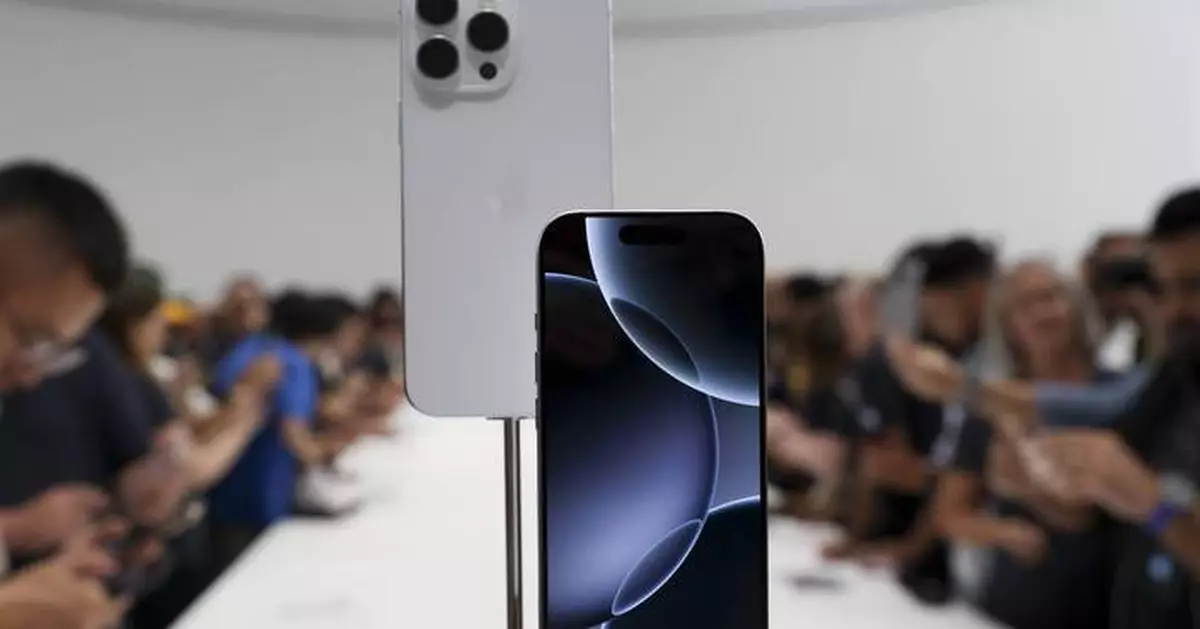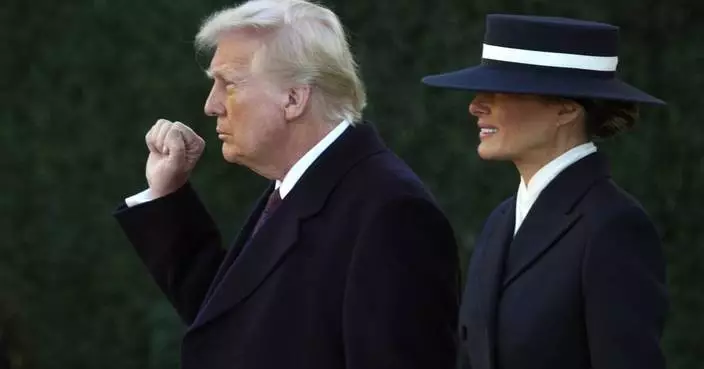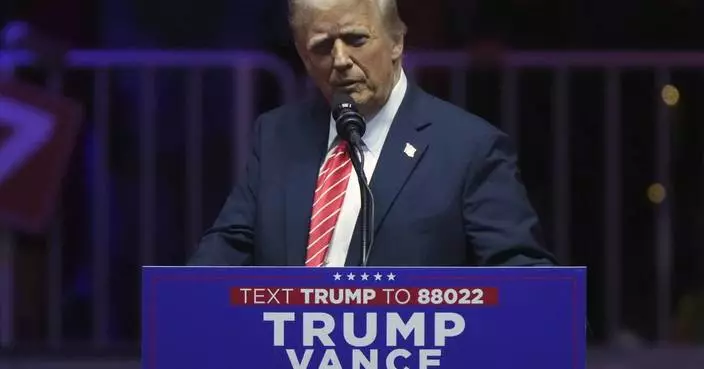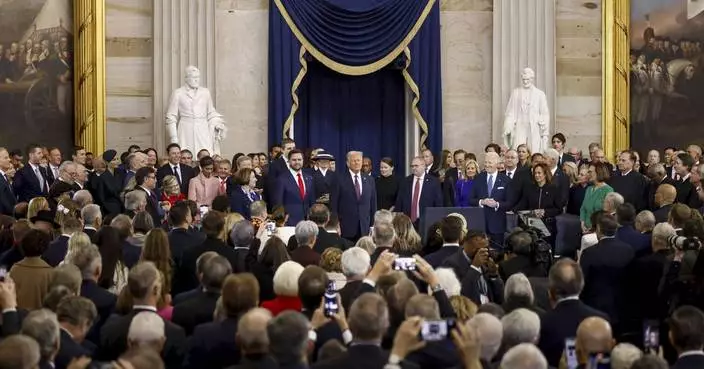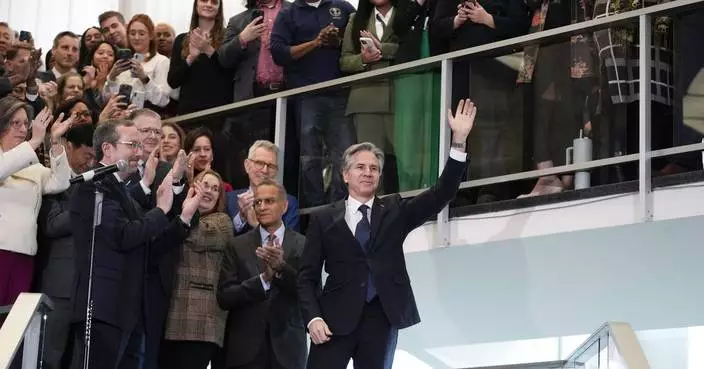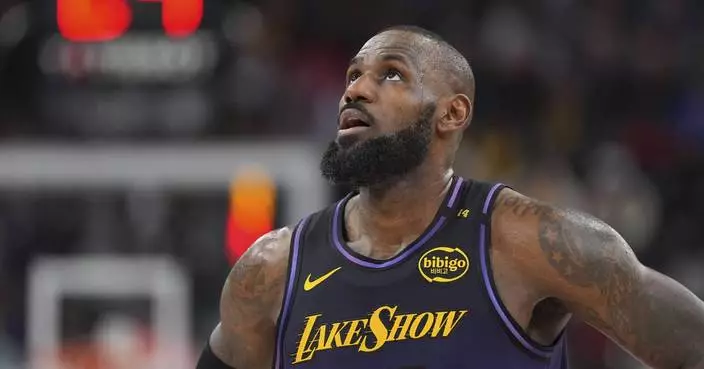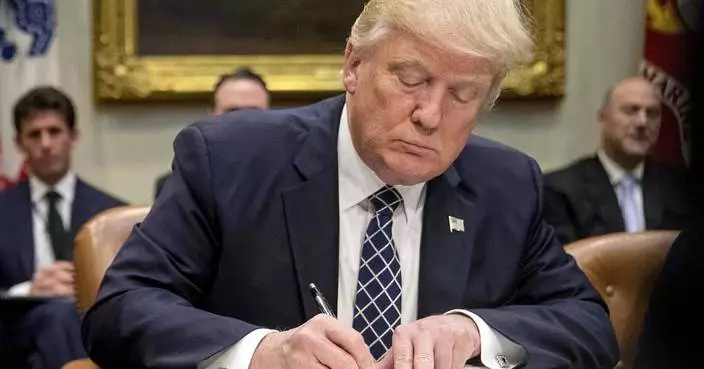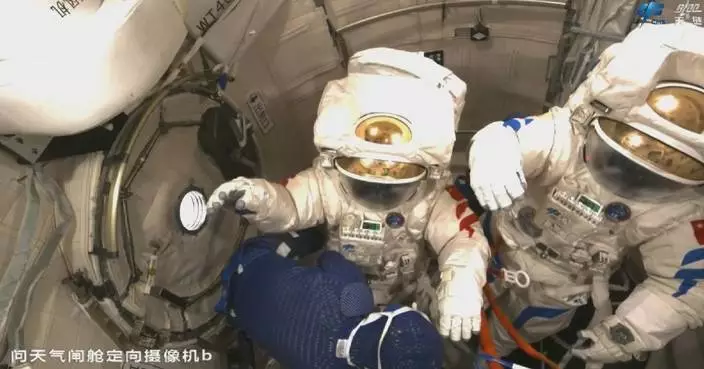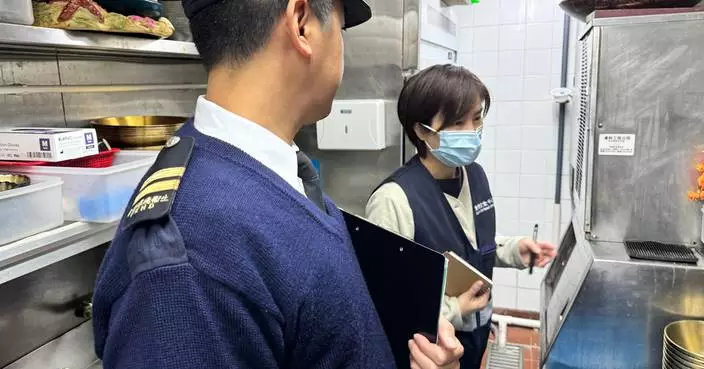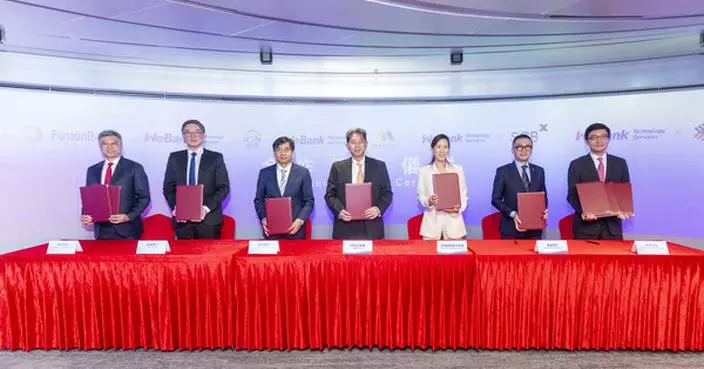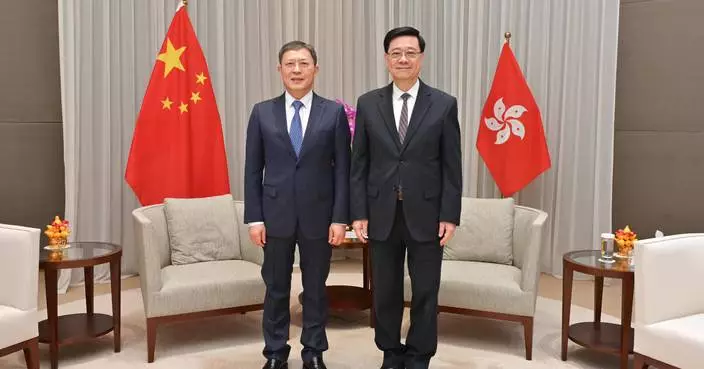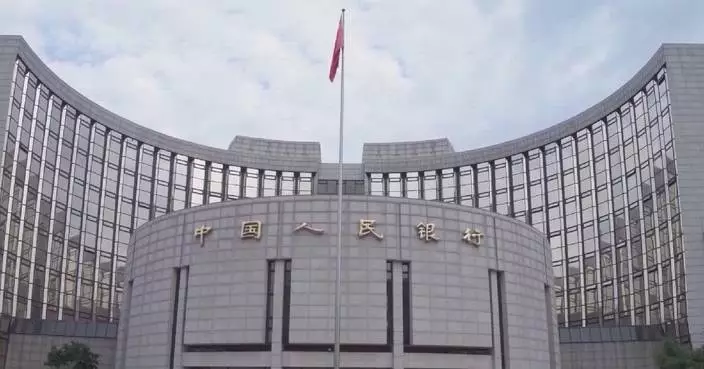CUPERTINO, Calif. (AP) — Apple squarely shifted its focus toward artificial intelligence with the unveiling of its hotly anticipated iPhone 16 along with a slew of new features coming with the next update to the device’s operating system. While the new phone lineup headlined Monday's showcase, the tech giant also shared updates to its smartwatch and AirPod lineups.
Here are all the biggest announcements from Apple's “Glowtime” event.
Apple's core artificial intelligence offerings are being packaged and billed as Apple Intelligence — first revealed at the company's developers conference in June.
These features include the ability to search for images in your library by describing them, creating custom emojis, summarizing emails and prioritizing notifications. Apple Intelligence will also upgrade Apple's virtual assistant Siri to get it to better understand requests and give it some awareness of on-screen actions taking place on the phone, hopefully making it more useful.
What sets Apple apart from what's being offered by rivals Samsung and Google? It is trying to preserve its longtime commitment to privacy by tailoring its AI so that most of its functions are processed on the device itself instead of at remote data centers. When a task requires a connection to a data center, Apple promises it will be done in a tightly controlled way that ensures no personal data is stored remotely.
Most of Apple’s AI functions will roll out as part of a free software update to iOS 18, the operating system that will power the iPhone 16 rolling out from October through December. U.S. English will be the featured language at launch but an update enabling other languages will come out next year, according to Apple.
The iPhone 16 Pro and Pro Max will offer slightly bigger displays and feature variants of the powerful A18 chip, which gives Apple the computing power its devices need to run AI functions.
The iPhone 16 “has been designed for Apple Intelligence from the ground up,” CEO Tim Cook said during Monday's event.
On the other end of the spectrum, the biggest physical change to the iPhone 16 lineup comes in the form of a dedicated camera-control button. The button responds to clicks and gestures, allowing users to quickly snap pictures, preview a shot or start video recording.
The button also allows owners to use something called Visual Intelligence, which will tell the iPhone 16 to automatically search on things you take photos of.
The phones will start shipping Sept. 20. The iPhone 16 will retail for $799, with the Plus model going for $899. The iPhone 16 Pro will cost $999, while the Pro Max will sell for $1,199.
The Apple Watch Series 10 features a larger, and brighter, wide-angle OLED display that will allow users to better view the watch at an angle. But Apple focused much of its presentation on the device's ability to detect signs of sleep apnea.
The new device is also being offered in a titanium finish for the first time, joining a longtime trend in the watch industry of offering a tougher, more lightweight, and perceived higher-quality, alternative to traditional materials.
The Series 10 watch starts at $399 and will be available on Sept. 20.
The new AirPods 4 series will come with an upgraded chip for better audio quality, and will feature more active noise cancellation.
If you frequently lose your ear buds, the new AirPods will also play a sound when you locate them through the Find My app.
In a medically focused update to the AirPods Pro 2, Apple said it will upgrade the devices so they can act as an over-the-counter hearing aid. A free software update will provide the upgrade and also include options to help protect hearing and the ability to administer a clinical-grade hearing test.
The AirPod 4 model costs $129, while the version with active noise cancelling will cost $179. They both ship on Sept. 20.
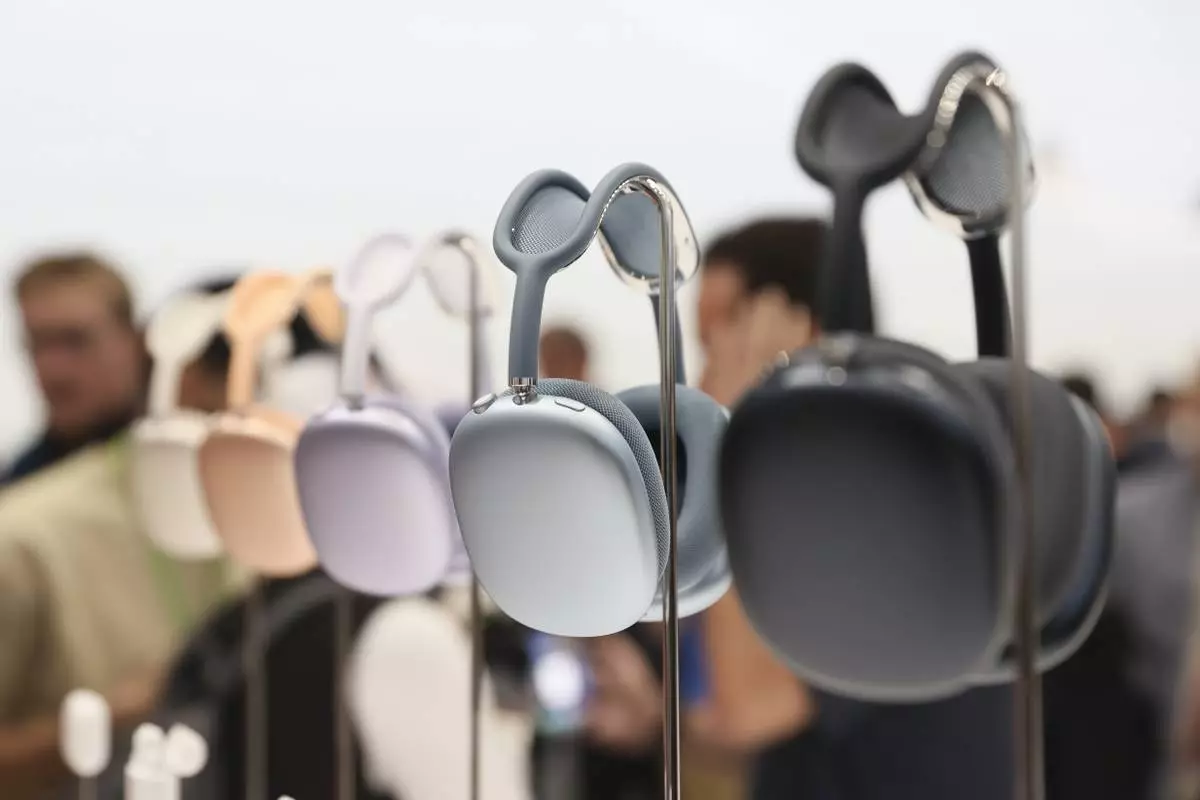
The AirPods Max are displayed at Apple headquarters Monday, Sept. 9, 2024, in Cupertino, Calif. (AP Photo/Juliana Yamada)
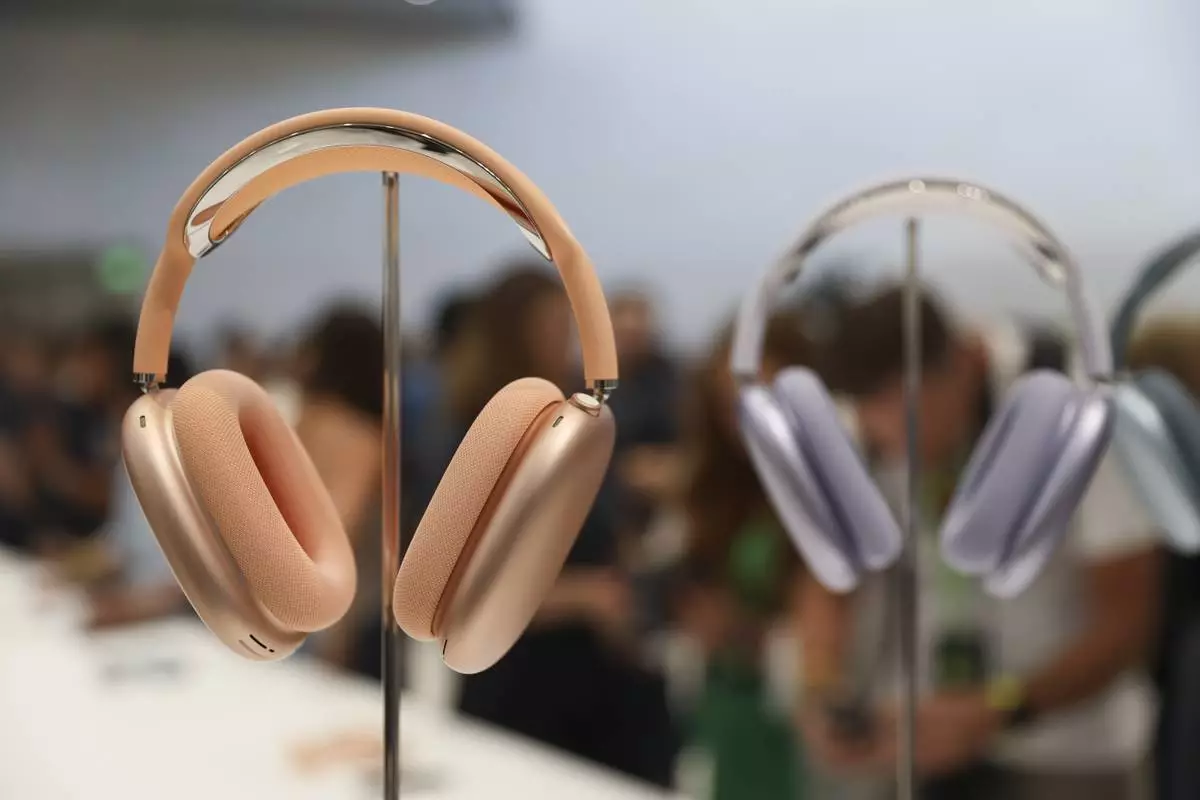
The AirPods Max are displayed at Apple headquarters Monday, Sept. 9, 2024, in Cupertino, Calif. (AP Photo/Juliana Yamada)
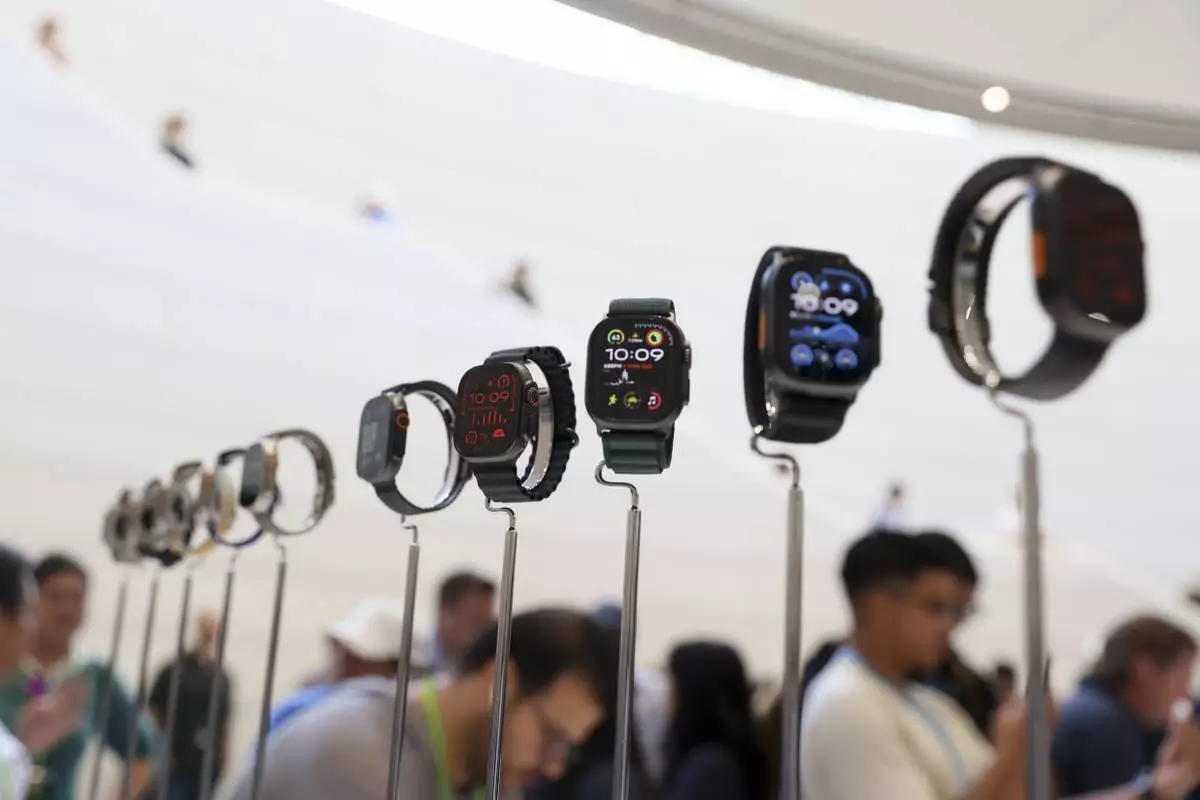
Apple Watches are displayed during an announcement of new products at Apple headquarters Monday, Sept. 9, 2024, in Cupertino, Calif. (AP Photo/Juliana Yamada)
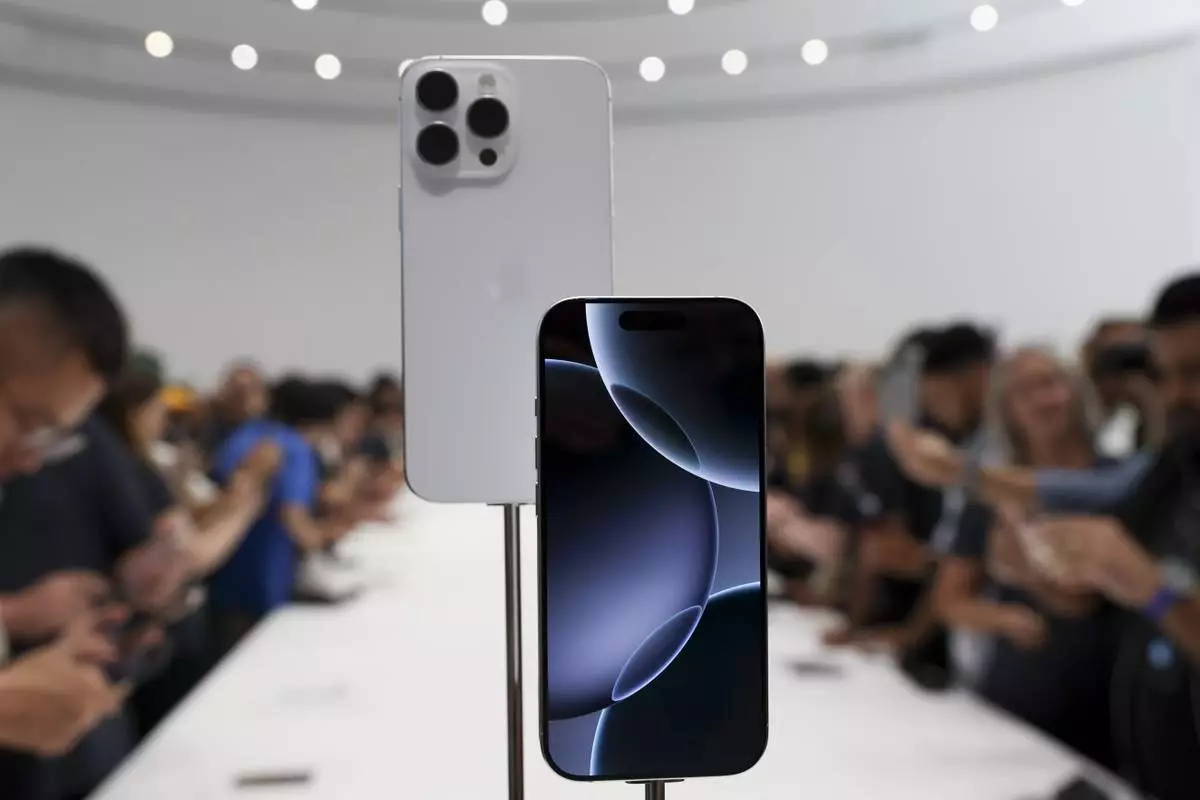
The new iPhone 16 is displayed during an announcement of new products at Apple headquarters Monday, Sept. 9, 2024, in Cupertino, Calif. (AP Photo/Juliana Yamada)
WASHINGTON (AP) — The Senate quickly confirmed Marco Rubio as secretary of state Monday, voting unanimously to give President Donald Trump the first member of his new Cabinet on Inauguration Day.
Rubio, the Republican senator from Florida, is among the least controversial of Trump’s nominees and vote was decisive, 99-0. Another pick, John Ratcliffe for CIA director, is also expected to have a swift vote, as soon as Tuesday. Action on others, including former combat veteran and Fox News host Pete Hegseth for defense secretary, is possible later in the week.
“Marco Rubio is a very intelligent man with a remarkable understanding of American foreign policy,” Sen. Chuck Grassley of Iowa, the senior-most Republican, said as the chamber opened.
It’s often tradition for the Senate to convene immediately after the ceremonial pomp of the inauguration to begin putting the new president’s team in place, particularly the national security officials. During Trump’s first term, the Senate swiftly confirmed his defense and homeland security secretaries on day one, and President Joe Biden’s choice for director of national intelligence was confirmed on his own Inauguration Day.
With Trump’s return to the White House, and his Republican Party controlling majorities in Congress, his outsider Cabinet choices are more clearly falling into place, despite initial skepticism and opposition from both sides of the aisle.
Rubio, who was surrounded by colleagues in the Senate chamber, said afterward he feels “good, but there’s a lot of work ahead.”
“It’s an important job in an important time, and I’m honored by it,” Rubio said.
Senate Majority Leader John Thune moved quickly Monday, announcing he expected voting to begin “imminently” on Trump’s nominees.
Democrats have calculated it's better for them to be seen as more willing to work with Trump, rather than simply mounting a blockade to his nominees. They're holding their opposition for some of his other picks who have less support, including Tulsi Gabbard for director of national intelligence and vaccine skeptic Robert F. Kennedy Jr. for health secretary.
Senate Democratic Leader Chuck Schumer said his party will “neither rubber-stamp nominees we feel are grossly unqualified, nor oppose nominees that deserve serious consideration.”
Rubio, he said, is an example of "a qualified nominee we think should be confirmed quickly."
Senate committees have been holding lengthy confirmation hearings on more than a dozen of the Cabinet nominees, with more to come this week. And several panels are expected to meet late Monday to begin voting to advance the nominees to the full Senate for confirmation.
The Senate Foreign Relations Committee unanimously advanced Rubio's nomination late Monday. The Senate Armed Services Committee and Senate Intelligence Committee, respectively, voted to move the nominations of Hegseth and Ratcliffe. And the Homeland Security and Government Affairs Committee advanced nominees Kristi Noem as homeland security secretary and Russell Vought as director of the Office of Management and Budget, but with opposition.
Rubio, a well-liked senator and former Trump rival during the 2016 presidential race, has drawn closer to the president in recent years. He appeared last week to answer questions before the Foreign Relations Committee, where he has spent more than a decade as a member.
As secretary of state, Rubio would be the nation’s top diplomat, and the first Latino to hold the position. Born in Miami to Cuban immigrants, he has long been involved in foreign affairs, particularly in South America, and has emerged as a hawk on China’s rise.
During his confirmation hearing last week, Rubio warned of the consequences of America’s “unbalanced relationship” with China. While he echoes Trump’s anti-globalist rhetoric, Rubio is also seen as an internationalist who understands the power of U.S. involvement on the global stage.
Rubio cultivated bipartisan support from across the aisle, both Republicans and Democrats. He takes over for outgoing Secretary of State Antony Blinken, who has said he hopes the Trump administration continues Biden's policies in the Middle East to end the war in Gaza and to help Ukraine counter Russian nomination.
The Senate is split 53-47, but the resignation of Vice President JD Vance and, soon, Rubio drops the GOP majority further until their successors arrive. Republicans need almost all every party member in line to overcome Democratic opposition to nominees.
Objection from any one senator, as is expected with Hegseth and several other choices, would force the Senate into procedural steps that would drag voting later into the week.
Associated Press writers Farnoush Amiri and Mary Clare Jalonick contributed to this report.
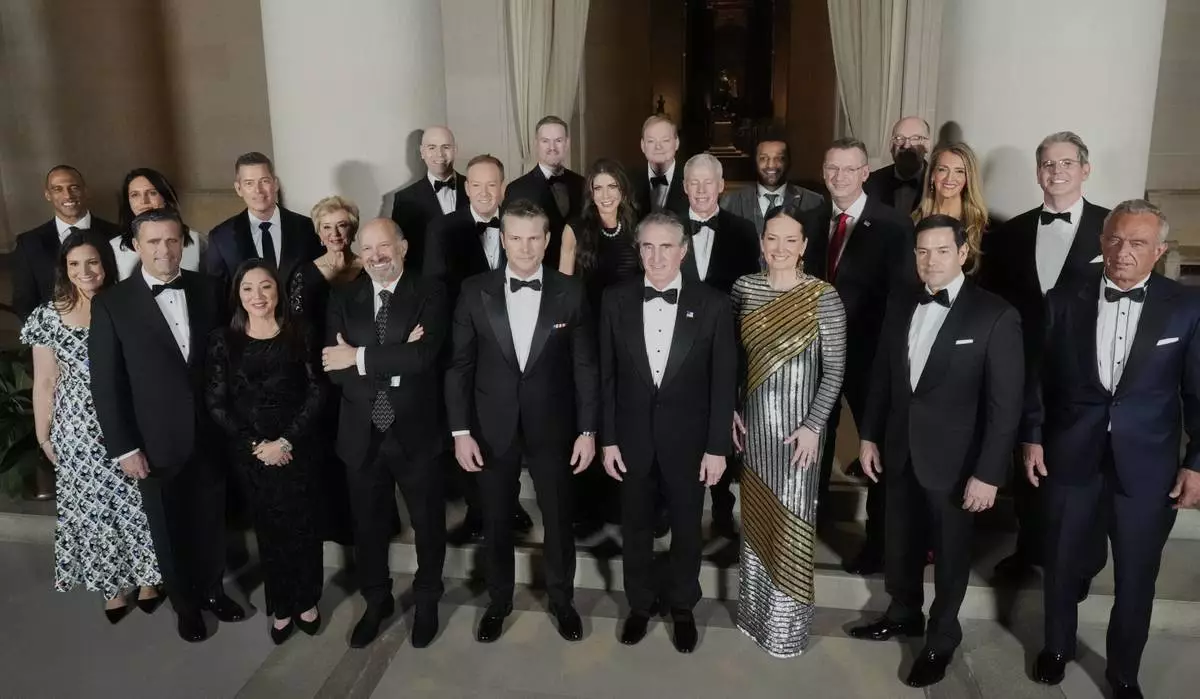
President-elect Donald Trump's Cabinet picks, other nominees and appointments, pose for a photo at the National Gallery of Art in Washington, Saturday, Jan. 18, 2025. First row from left, Elise Stefanik, John Ratcliffe, Lori Chavez-DeRemer, Howard Lutnick, Pete Hegseth, Doug Burgum, Brooke L. Rollins, Marco Rubio and Robert F. Kennedy Jr.; second row from left, Scott Turner, Tulsi Gabbard, Sean Duffy, Linda McMahon, Lee Zeldin, Kristi Noem, Chris Wright, Doug Collins, Kelly Loeffler and Scott Bessent; and third row from left, Stephen Miran, Jamieson Greer, Kevin Hassett, Kash Patel and Russell Vought. (AP Photo/Mark Schiefelbein)
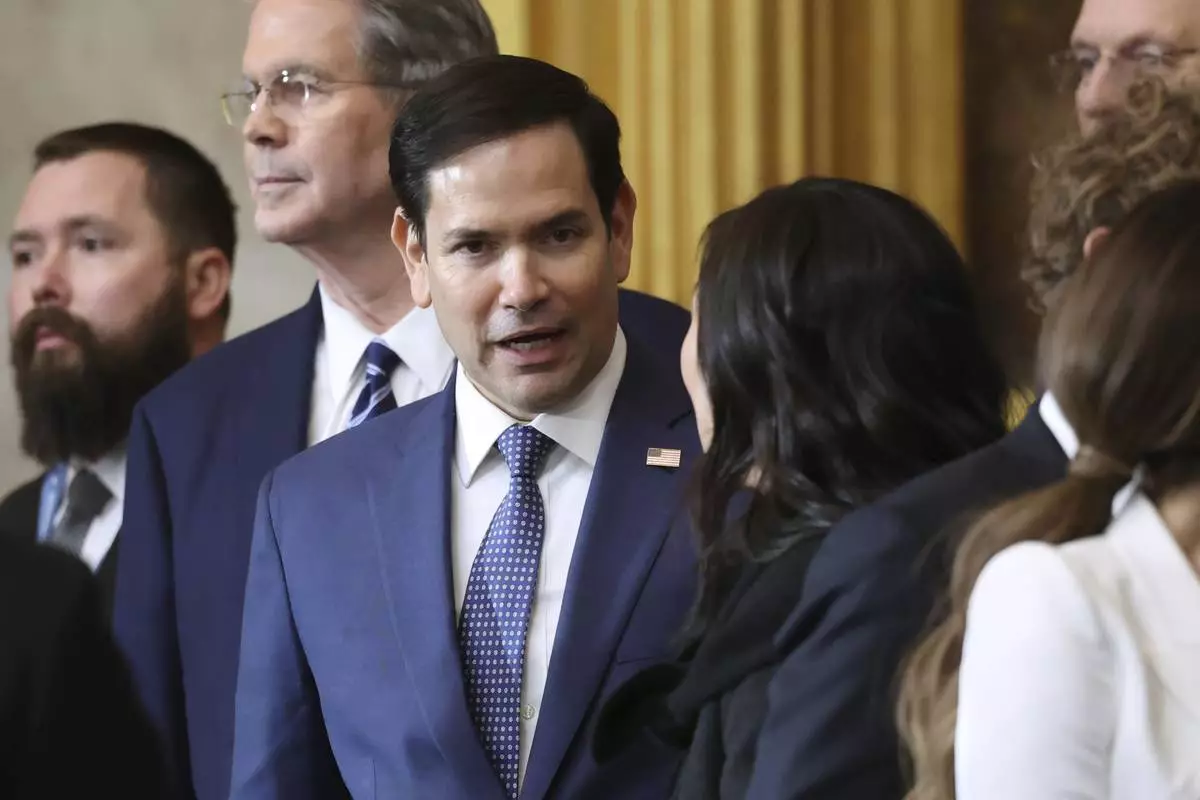
Sen. Marco Rubio, R-Fla., a nominee for Secretary of State, attends the 60th Presidential Inauguration in the Rotunda of the U.S. Capitol in Washington, Monday, Jan. 20, 2025. (Kevin Lamarque/Pool Photo via AP)






